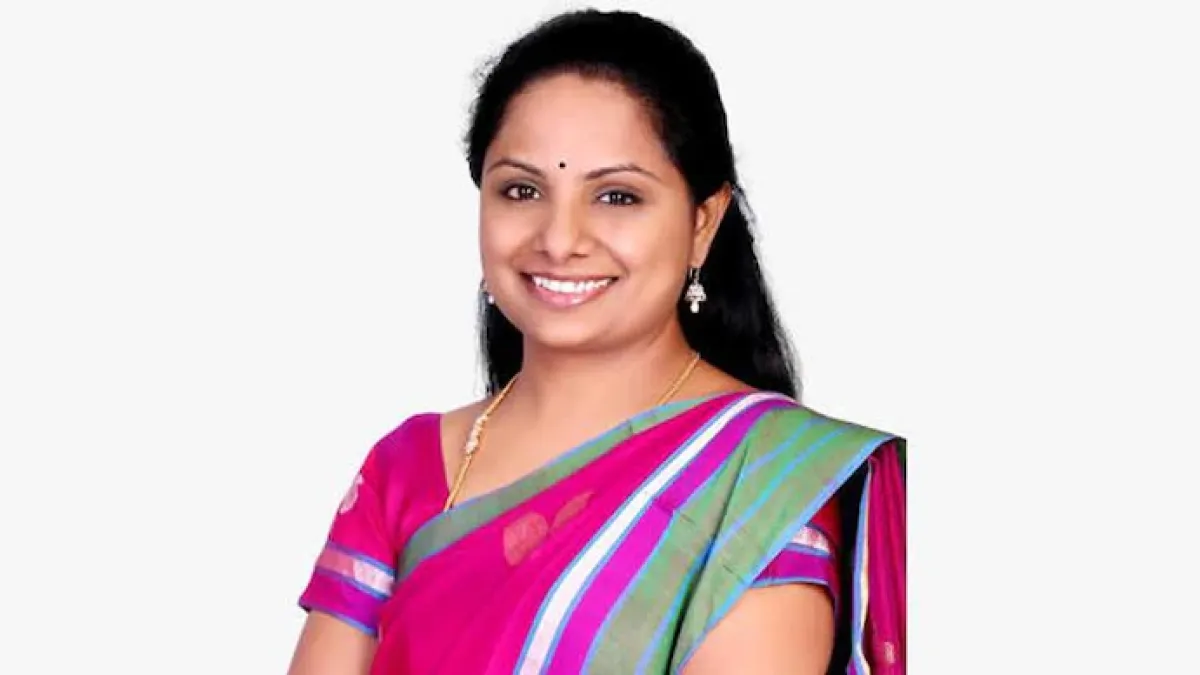The Enforcement Directorate (ED) has summoned Bharat Rashtra Samithi (BRS) MLC and Telangana Chief Minister K Chandrashekar Rao’s daughter K Kavitha for interrogation in the Delhi liquor policy case again on March 16. K Kavitha leaves the ED office in the national capital on Saturday after being questioned in connection with the Delhi spirits policy case.
Kavitha had requested that her interrogation be moved to Saturday, citing her hunger strike in Delhi on Friday. The central agency granted her request and postponed the interrogation for Saturday. She arrived in the national capital on March 8, only hours after the ED summoned her for interrogation.
BRS leader KT Rama Rao arrived at his father’s mansion in the national capital on Friday. Interestingly, the ED has detained former Delhi constable Manish Sisodia in the same case.
According to reports, Kavitha was to be brought face to face with Hyderabad-based businessman Arun Ramchandra Pillai, who was detained on Monday night in connection with the liquor policy case.
The summons was described by the MLC as “tactics of intimidation” by the Centre against Telangana Chief Minister K Chandrasekhar Rao and the BRS, and the party stated that it will continue to fight and expose the Centre’s failures, as well as raise its voice for a brighter and better future for India.
“I would also like the ruling party at the Centre to know that these tactics of intimidation against the fight and voice of our leader, CM KCR, and against the entire BRS party will not deter us. Under the leadership of KCR Garu, we will continue to fight to expose your failures and raise voices for a brighter and better future for India,” Kavitha said in a tweet.
On March 8, the BRS slammed the Government after the ED questioned Kavitha in connection with its continuing investigation into the Delhi excise policy issue, claiming that the central investigation agencies had become an extension arm of the BJP.
Referring to the summons as “politically motivated,” BRS leader Ravula Sridhar Reddy stated that, aside from the ED and the BJP, no one truly understands the case filed in connection with the recently abandoned New Delhi tax scheme.
ED’s investigation has shown that Pillai is a major figure in the overall scheme involving massive kickback payments and the development of the South Group’s largest cartel.
Telangana MLC Kavitha, Sarath Reddy (promoter of Aurobindo Group), Magunta Srinivasulu Reddy (MP, Ongole), his son Raghav Magunta, and others make up the South Group. The federal agency inquiry indicated that Pillai, Abhishek Boinpalli, and Butchi Babu were representing the South Group.
Pillai and his friends were collaborating with various people to carry out the political agreement reached between the South Group and the head of the Aam Aadmi Party (AAP) Pillai was an accomplice in the kickbacks from the South Group and the recoupment of the same from Delhi firms, according to an ED probe.
The ED has stated that the South Group paid AAP leaders Rs 100 crore in bribes.
Pillai is said to be a 32.5 percent partner in Indo Spirits, which has an L1 license. Indo Spirits is a partnership business comprised of Arun Pillai (32.5%), Prem Rahul (32.5%), and Indospirit Distribution Ltd (35%), with Arun Pillai and Prem Rahul representing the benami investments of Kavitha and Magunta Srinivasulu Reddy and his son Raghava Magunta.
Kavitha, a Telangana Legislative Council member, was questioned in the same matter by the Central Bureau of Investigation (CBI) in December last year. The tax proposal was approved by the Delhi Cabinet led by Chief Minister Arvind Kejriwal in the midst of the fatal Delta Covid-19 outbreak in 2021.
According to the Delhi government, the policy was developed to maximise revenue collection, eliminate the sale of fake spirits or non-duty-paid spirits in Delhi, and improve user experience.
The CBI had filed a case against suspected corruption in the excise policy for 2021-22. The AAP administration subsequently repealed the excise policy.
Sisodia was one of 15 people arrested in an FIR lodged by the CBI. In this case, excise authorities, spirits firm executives, dealers, unknown state personnel, and private individuals were arrested.
It was claimed that irregularities were committed, such as changes to the Excise Policy, and undue favours were granted to licence holders, such as a waiver or decrease in licence price, an extension of L-1 licence without approval, and so on.


















